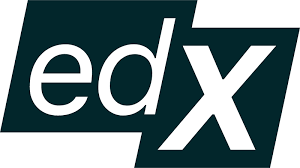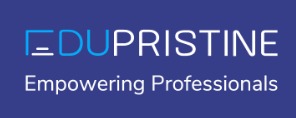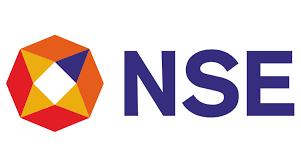Financial modeling is fundamental in the shaping of business strategies and the decisions made by companies throughout the world. Financial modeling courses can teach you how to assemble complete financial models, decipher complicated data, and use information that invites success in business. In this article, we are going to discover why financial modeling is important for Eritrea’s economic development and how it helps in economic development. Along with this, we also discuss the skills gained from these courses and list the top ten financial modeling courses in Eritrea.

Understanding Financial Modeling
Financial modeling is the construction of a numeric representation of an organization's financial performance and projections. In other words, it is about making a structured spreadsheet to organise a business’s historical data to its current financial position and future expectations to make an informed decision.
Professionals in all industries use financial modeling as a key tool. It helps them assess how changes in strategic decisions like the launch of a new product or an acquisition play out financially.
It also helps them understand how potential market expansion opportunities can influence their financial outcome. These models are not simplistic, and they involve reading the assumptions and variables that create the business outcomes.
In practice, financial modeling often involves:
1. Historical Analysis: Creating models using past financial data to anticipate trends and see how one ran as compared to other companies.
2. Projections: The ability for one to use various assumptions to forecast future revenues, expenses, and profits.
3. Scenario Testing: How different scenarios, for example, economic downturns and shifts in the marketplace, might affect outcomes.
4. Valuation: Estimating a company or project’s worth by models like Discounted Cash Flow (DCF) or Comparable Company Analysis (CCA).
Financial modeling is used in large organisations such as startups and NGOs, but also with government projects and used for budgeting, funding proposals, and performance tracking. Financial modeling skills are becoming essential for professionals who want to make contributions to the development of the economy of Eritrea.
Which is diversifying businesses and seeing renewed activity in sectors such as agriculture and renewable energy. Financial modeling is an important job requirement as it allows one to turn raw financial data into actionable insights. By mastering financial modeling, you can become a consultant or a financial modeling expert in any industry.
Key Concepts in Financial Modeling
To be able to develop a good, robust and accurate model, you must be able to master a few concepts that are essential to being able to create financial models.
These are very important for understanding how a company’s financials perform, how it projects and eventually, how to make a sound strategic decision. Here are the key concepts you will learn in financial modeling courses in Eritrea.
- Historical Data Analysis
First, it’s necessary to understand and organise historical financial data, and then we can move on to start the financial modeling. An example would be the analysis of income statements, balance sheets and cash flow statements to find trends, seasonality and financial performance through time.
- Assumptions and Drivers
A financial model is based on assumptions for the future. To create realistic projections, you have to identify key drivers. This includes revenue growth rates, cost structures, and market conditions.
- Financial statements integration
One key part of financial modeling is how to integrate the three financial statements—income statement, balance sheet, and cash flow statement. Those statements must then connect accurately so that changes in one turnaround would affect the other, making the model consistent and trustworthy.
- Forecasting
Financial modeling is all about projecting financial metrics such as revenues, costs and profits on assumptions and past trends. Linear growth or regression analysis or more sophisticated statistical methods are often used in forecasting techniques.
- Discounted Cash Flow (DCF) analysis
DCF is an important valuation technique that estimates the present value of future cash flows. Calculating metrics such as Net Present Value (NPV), Internal Rate of Return (IRR) and determining a suitable discount rate are all ways of doing this.
- Sensitivity and Scenario Analysis
In these analyses, variables are tested over how they impact the model’s output. Scenario analysis considers different future (e.g. optimistic, pessimistic, and baseline) conditions, while sensitivity analysis pinpoints the impact of a single variable on the overall outcomes.
- Financial Ratios
Debt to equity, return on equity, and profit margins are all financially important ratios to determine a company’s financial health. These measurements are used to evaluate performance, solvency, and efficiency.
- Valuation Techniques
In addition to the methods discussed above, financial modeling uses Precedent Transaction Analysis (PTA) and Comparable Company Analysis (CCA) to estimate the value of a business or project.
- Excel Proficiency
Most financial modeling is done using spreadsheet software, and MS Excel is the first choice. To build a dynamic model of the costs of a business, you will have to develop advanced Excel skills, including formula optimisation, VBA (Visual Basic for Applications) and macros.
- Presentation and Communication
A good financial model will present the data clearly and effectively. Some of these include visually appealing charts, graphs and dashboards that people stakeholders can see.
How Financial Modeling is Supporting Eritrea’s Economic Growth
Eritrea’s economy is advancing in different industries. Agriculture, renewable energy and infrastructure have all developed. Financial modeling is the dynamic force behind this transformation that allows businesses, government agencies and the investor community the opportunity to make informed decisions.
Here’s how financial modeling is contributing to Eritrea’s economic development:
- Facilitating investment decisions
Financial models help local businesses and government bodies to attract foreign and domestic investment. Businesses would be able to come up with well-structured models which forecast potential returns, risks and growth opportunities in the industry. This includes renewable energy or mineral resources, which would show the viability of projects. Securing the money to fuel development is a must.
- Development of Infrastructure
Large-scale public programs are evaluated with financial modeling for improving transportation, water supply and energy infrastructure. Such initiatives are more likely to be allocated either efficiently or transparently and can be mathematically modelled to calculate costs, time and revenue potential.
- In Supporting Small and Medium Enterprises (SMEs).
The SMEs have become an integral part of Eritrea’s economy. Financial modeling is a series of tools for the entrepreneur to devise budgets, foretell revenues, and minimise costs. More importantly, the structured approach is not only ideal for improving business performance, but it also helps to build credibility for businesses looking for loans or collaboration in the market.
- Improving Agricultural Productivity.
Agriculture still contributes heavily to Eritrea’s economy. Stakeholders can use financial modelling to calculate the results of modern farming techniques, irrigation systems, and supply chain enhancement from a financial perspective. This model helps in improving decision-making and increasing productivity by analysis of cost and potential yields.
- Increasing Support for Renewable Energy Projects
Solar and wind power have good potential in Eritrea. Such projects can be assessed in the long run as well as take into consideration factors such as the start cost, the maintenance cost, and the expected energy output through financial modeling. These insights are necessary to achieve the country’s sustainability goals.
- Mitigating Risks
However, uncertainty is a recurring problem in developing economies. Using financial modeling tools, businesses can generate scenarios and sensitivity analyses. They use this to predict and respond, tentatively, to the influence of market fluctuations, limited resources or external economic factors. Financing risk is reduced, and stability is increased.
- Boosting Job Creation
With the growing importance of financial modeling in various industries, there are more and more opportunities for trained professionals. The demand for skilled modelers will help to strengthen the country’s workforce no matter whether they are from finance and consulting or in project management.
- Greater International Collaboration
Financial modelers employed provide the platform to enable Eritrean businesses and government agencies. They do this to effectively engage with and respond to international organisations, investors, and development agencies.
To be great, financial projections have to be clear and concise enough for people to trust them and thus pave the way for collaborations that can help spur economic development.
Benefits of Financial Modeling Courses in Eritrea
| Benefits | Provided by the Courses | Description |
| Diverse Career Options | ✅ | Equity Research Analyst, Financial Analyst, Investment Banking, Commercial Banking, Private Equity, Corporate Development, Financial Planning and Analysis, Real Estate Development, Venture Capital, Mezzanine Financing, Startups etc. |
| Better Salary Packages | ✅ | 952,000 CRC (median total pay) to 890,000 CRC (average) per month |
| Up-to-date Knowledge | ✅ | Financial Modeling, Microsoft Excel, Accounting, Forecasting, Auditing, Data Analysis, Analytical Skills, Valuation, Sensitivity Analysis, Spreadsheet Management, Presentation, Industry-Specific Knowledge, Technology |
| Practical Skills | ✅ | Enhance your practical skills with industry-aligned projects |
| Cost-Effective Learning | ✅ | Budget-friendly, exclusive, high-quality learning |
| Artificial Intelligence | ✅ | Upgrade your talent with AI and use AI tools in financial modeling. |
| In-House Internships | ✅ | Opportunity to work with recognised companies through internships. |
| Certification and Credibility | ✅ | Gain internationally accredited certifications |
| Placement Opportunities | ✅ | Avail placement assistance for well-paid jobs |
Advantages of Financial Modeling Courses in Eritrea
Aside from learning how to use a spreadsheet, financial modeling courses offer many benefits. They are all invaluable courses across many industries, allowing professionals and students to get the tools so they can navigate the complex financial world. Here are some key advantages of enrolling in financial modeling institutes in Eritrea:
- Better decision-making skills
Financial modeling is used to analyse the data and to predict what the future will look like. It facilitates data-driven decisions ranging from evaluating investment opportunities and managing budgets to business growth decisions.
- Career Opportunities
Financial modeling skills are used in investment banking, corporate finance, private equity and consulting areas, and it has huge demand. It helps in the development of employability and lands you on a high-paying career path.
- Financial Understanding Enhancement
The courses give us an overall idea of how to read financial statements, learn about valuation skills, and assess the KPIs (Key Performance Indicators). This basic knowledge is fundamental to anyone who wants to work in Finance or to be in charge of management of the business operation.
- Versatility Across Industries
Real estate, healthcare, energy and technology are all areas where you can put your financial modeling skills to use. There’s always versatility in the fact that professionals move to other industries and roles with ease.
- The Practical Application of Theoretical Knowledge
Financial modeling institutes in Eritrea include real-world case studies and courses where learners can practice theoretical concepts in real-life circumstances. They can use this to make models to solve real business problems.
- Advanced Excel and Analytical Skills are required.
Skills acquired through training in Eritrean financial modeling courses concentrate on making use of spreadsheet programs such as Microsoft Excel. There is also an introduction to advanced skills such as Macros, VBA (Visual Basic for Applications) and Data Visualisation. These skills can be implemented very simply to streamline workflows and to increase productivity.
- Developing Strategic Thinking
Building financial models allows you to analyse multiple variables so that you can consider all of their implications at once and fosters strategic thinking. This skill is critical to long-term planning, risk management, and knowing where to grow.
- For Professional Certifications.
Certifications from Financial modeling courses such as CFA, CPA, or FMVA are also included. This provides the foundation for the required knowledge and practical experience that makes it easy for a member to succeed in the certification exams.
- Networking Opportunities
The one great advantage of financial modeling courses is that you are given access to a network of professionals, industry experts and peers. It can be a network where you can meet with a mentor or start connecting with job opportunities and collaborations.
- Larger Success in Being an Entrepreneur
Aspiring entrepreneurs could benefit from financial modeling courses on their planning and running of startups. They are used to forecast, budget and see if a business will be a success or not.
Enrolment in a financial modeling course enables professionals to sharpen technical skills as well as position themselves above the crowd of competition in the global job market. This course enables one to confidently and effectively solve real-world financial challenges.
Top 10 Financial Modeling Courses in Eritrea
| Institutes | Mode | Module Specific Trainers | Mock Interview |
| IIM SKILLS | Online | ✅ | ✅ |
| Corporate Finance Institute (CFI) | Online | ✅ | ❌ |
| Coursera | Online | ❌ | ❌ |
| EDX | Online | ❌ | ❌ |
| Financial Edge | Online | ✅ | ❌ |
| Wall Street Prep | Offline | ❌ | ❌ |
| Udemy | Online | ✅ | ❌ |
| EduPristine | Offline and Online | ✅ | ✅ |
| LinkedIn Learning | Online | ✅ | ❌ |
| National Stock Exchange (NSE) | Online | ✅ | ❌ |
1. IIM SKILLS
Financial modeling courses in Eritrea offered by IIM SKILLS is a globally recognised course that balances theoretical learning with practical applications.

The topics covered in this course include financial statement analysis, valuation techniques and more advanced Excel functions. The program is offered in online mode, allowing students and professionals in Eritrea to enrol in the program easily.
This is supplemented by hands-on practical assignments and case studies for better understanding. The course usually lasts about four months, and it is flexible for working professionals.
The financial modeling institutes in Eritrea are a good option for learners who wish to pursue careers in either finance or consulting careers.
IIM SKILLS Curriculum:
| Module 1 – Basic and Advanced Excel (8-10 hours)
Module 2 – Accounting Concepts and Financial Statements (5-7 hours) | Module 3 – Ratio/KPI Analysis (4-6 hours)
Module 4 – Basics of Financial Modeling (4 hours) |
| Module 5 – Different Types of Financial Models (12-15 hours) | • LBO Model
• M&A Model • Private Equity Return Model • 13 Week Cash Flow Model |
| Module 6 – Business Valuation (7-9 hours) | • Relative Valuation – Trading and Transaction Comps
• DCF Valuation • NAV Approach for Valuation |
IIM SKILLS Three Tailored Financial Modeling Master Course:
| Course | Duration | Fees |
| Financial Modeling Master Course: Self-Paced Course | Self-paced | 417.94 USD |
| Financial Modeling Master Course: Job Assist Program | 4 months | 697.51 USD |
| Financial Modeling Master Course: Job Guarantee Program | 4 months | 2095.31 USD |
IIM SKILLS ALUMNI:
 |  |  |
 |  |  |
Contact Information:
| Phone | +91 9580740740 |
| [email protected] | |
| Website | iimskills.com |
Have a look at these industry-specific Financial Modeling Courses in Egypt and master the in-demand skills, tools, and techniques.
2. Corporate Finance Institute (CFI)

CFI is a globally known provider of financial modeling and valuation analysis (FMVA) certification. Their financial modeling courses in Eritrea are self-paced. The curriculum includes modules on Excel proficiency, financial statement modeling, and scenario analysis.
Learners in Eritrea can choose to complete CFI’s program online and get a certificate that is recognized globally. Quizzes and assignments are included within the program to test learners’ understanding and increase skill development.
While this option has higher course fees than other options; its massive content and credibility make it worth the investment.
| Course | Duration | Fees |
| Financial Modeling and Valuation Analysis | Self-Paced | USD 496 |
Eager to know about the extensive Financial Modeling Courses in the Bahamas with placement support? Here is a guide.

3. Coursera

The financial modeling courses in Eritrea are offered by Coursera. This program trains you to create financial models using actual data and explains how valuation, the assessment of risk, and forecasting work.
The specialization consists of multiple courses which concentrate on different aspects of financial modeling. It’s online and provides a certificate upon completion that is beneficial to learners from Eritrea. The course is flexible in terms of duration and students can learn at their speed.
| Course | Duration | Fees |
| Business and Financial Modeling | Self-paced | USD 60/month |
| Finance and Quantitative Modeling for Analysts | Self-paced | USD 60/ month |
Refer to the list of top Financial Modeling Courses in Brazil.
4. EdX

EdX provides a professional certificate in finance modeling and collaborates with the best universities and institutions. In this program, the focus is on the models for investment analysis, corporate valuation and budgeting.
Instructors from top universities have created their financial modeling courses in Eritrea. They aim to provide content of high quality, combining both practical and academic rigour.
Learners from all over the world are able to access the program online. It also includes case studies and real-world examples to make learners imbibe the industry-relevant skills.
| Course | Duration | Fees |
| Financial Modeling and Analysis | 4 weeks | Free |
| Commercial Property Contracts and Financial Modeling | 4 weeks | Free |
| Introduction to Cash Flow: Modeling and Forecasting | 8 weeks | USD 150 |
Explore these industry-specific Financial Modeling Courses in Columbia and master the in-demand skills, tools, and techniques.

5. Financial Edge

Financial Edge financial modeling courses in Eritrea are tailored to the industry’s high expectations. Such a program has advanced analysis in Excel, merger and acquisition models, and leveraged buyout analysis.
It’s particularly useful for professionals who want to work as corporate financiers or in private equity. Even though the courses are online, Financial Edge Training is also available to give one-to-one support to the learners to get through the modules. It is reputed for its financial modeling institutes in Eritrea.
| Course | Duration | Fees |
| Financial Modeling and Valuation | Self-paced | USD 165 |
Explore the top-ranked Financial Modeling Courses in Ecuador for your career enhancement!
6. Wall Street Prep

Wall Street Prep provide financial modeling courses in Eritrea for those who want a career in finance. Their financial modeling institutes in Eritrea focus on Excel skills, financial statement analysis and techniques of valuation in particular.
What sets Wall Street Prep apart is that it builds models that are being used in those companies where financial analysts work. The amount of resources and lifetime access to the course materials ensures that there will be continued learning opportunities.
| Course | Duration | Fees |
| Financial and Valuation Modeling Certification Program | 46 Hours | USD 494 |
Here is an extensive guide to the top-ranked Financial Modeling Courses in China. Read and explore in-depth.

7. Udemy

Udemy provides a budget, beginner-friendly solution for financial modeling courses in Eritrea. Their courses are designed for newbies in finance to approach the complicated aspects of it. Topics include Excel basics, financial analysis of financial statements, and valuation techniques.
Eritrea’s learners have access to Udemy’s platform, getting lifetime course materials and occasional course fee discounts. The financial modeling institutes in Eritrea are a good pick for students and professionals.
Read to know why Financial Modeling Courses in Bhutan is in demand?
8. EduPristine

Financial modeling courses in Eritrea are offered by EduPristine. It teaches people how to build models, mainly geared towards investment analysis and business planning, but rooted in practical skills.
As a benefit to its learners from Eritrea, it is available in an online format and in a self-paced structure. The course is a mix of interactive quizzes and downloadable resources to help you learn effectively. It is one of the well-known financial modeling institutes in Eritrea.
| Course | Duration | Fees |
| The Financial Modeling Course | 100 Hours | Not Available |
We recommend reading the best Financial Modeling Courses in Bahrain.

9. Linkedin Learning
![]()
For beginners, LinkedIn Learning’s financial modeling courses in Eritrea are great. They try to impart hands on training for Excel and financial modeling. The program includes scenario analysis modules, valuation techniques and budgeting.
This is well suited for professionals trying to upgrade their skill set accompanied by certification. The curriculum is entirely online with live projects designed keeping in mind the practical learning. It is one of the best financial modeling institutes in Eritrea.
| Course | Duration | Fees |
| Financial Modeling and Forecasting Financial Statements | Self-Paced | USD 30/ Month |
Find out the best Financial Modeling Courses in Kenya for your career enhancement.
10. National Stock Exchange (NSE)

Financial modeling courses in Eritrea related to investment banking and corporate finance is provided by the National Stock Exchange (NSE) Academy. The course is designed for professionals wishing to explore detailed insights into valuation and financial analysis.
Theoretical lessons and practical exercises are provided in one of the leading financial modeling institutes in Eritrea so that learners can easily and effectively master this knowledge. The course is online and thus can be accessed by people in Eritrea.
| Course | Duration | Fees |
| Financial Modeling and Valuation | 10 hours | Not Available |
Frequently Asked Questions
1. Are financial modeling certifications accepted globally?
Some of the most popular certificates come from reputed providers such as IIM SKILLS, CFI, EdX, Coursera etc. and are accepted worldwide. These certifications add value to your professional credibility and are appreciated in finance, investment banking and consulting fields.
2. Do financial modeling courses in Eritrea come with any kind of scholarships or aid?
There are some course providers such as Coursera, EdX and LinkedIn Learning, that provide financial aid or scholarships to learners. Also, there is a provision of discounts offered by institutions, such as discounts for early registrations or group enrolment. The best way is to take a look at every course’s website for eligibility and application.
3. How can financial modeling help the industries in Eritrea?
Financial modeling can make a great difference in industries such as mining, renewable energy, agriculture and tourism in Eritrea. Professionals use models to forecast revenues, establish budgets and evaluate investment opportunities. These help to advance sectoral growth as well as economic development.
Conclusion
Financial modeling is an indispensable skill that helps professionals in Eritrea to grow in various economic industries. With the continued growth of Eritrean industries, the need for skilled professionals familiar with financial scenario modeling and the management of resources will become even greater. By taking the financial modeling courses in Eritrea, you can learn data analysis, budgeting, and forecasting. The courses facilitate these skills and can help you acquire a footing in the local and global business environment.


